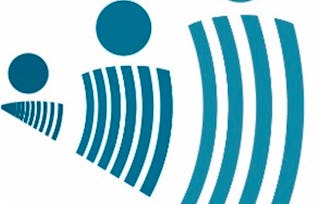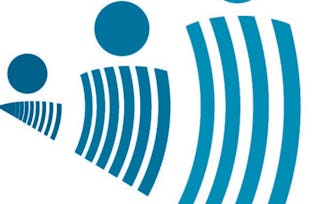This course provides an introduction to evaluating public health programs at scale. This course focuses on evaluating public health programs and policies in low- and middle-income countries, however, core skills of designing and carrying out an evaluation are applicable to any public health programs and policies. The course will equip you with skills to:

Evaluating Public Health Programs at Scale

Evaluating Public Health Programs at Scale
This course is part of Evaluating Large-Scale Health Programs Specialization


Instructors: Agbessi Amouzou
4,454 already enrolled
Included with
22 reviews
Recommended experience
Skills you'll gain
- Health Equity
- Data Collection
- Health Assessment
- Healthcare Ethics
- Surveys
- Statistical Analysis
- Public Health
- Maternal Health
- Research Design
- Program Evaluation
- Institutional Review Board (IRB)
- Policy Analysis
- Skills section collapsed. Showing 10 of 12 skills.
Details to know

Add to your LinkedIn profile
See how employees at top companies are mastering in-demand skills

Build your subject-matter expertise
- Learn new concepts from industry experts
- Gain a foundational understanding of a subject or tool
- Develop job-relevant skills with hands-on projects
- Earn a shareable career certificate

There are 6 modules in this course
Program evaluations are important in global health for many reasons. Some of the most important reasons are to: 1) service as a "reality check" on subjective expectations; 2) to guide continued improvement of the program; and 3) to justify continued funding. In this course, you will learn how to design and carry out high-quality program evaluations that answer the priority questions of program managers. Although much of the content is relevant to all program evaluations, we will focus on the evaluation of programs being delivered at scale by governments and their partners in low and middle income countries. This module will introduce you to program evaluation and our focus on effectiveness evaluations of large-scale reproductive, maternal, newborn, and child health and nutrition (RMNCH&N) programs.
What's included
3 videos4 readings1 assignment
This module will walk you through the steps to designing an evaluation including identifying relevant stakeholders, developing an impact model, and selecting appropriate data sources and indicators.
What's included
10 videos5 readings7 assignments
This module will help you choose appropriate evaluation designs after defining priority evaluation questions.
What's included
8 videos4 readings4 assignments
This module will guide you through how to critically appraise a program's targets for coverage and impact using the Lives Saved Tool, assess program implementation strength and quality of care, measure coverage, and estimate program impact.
What's included
16 videos2 readings5 assignments
This module will outline steps to developing measurement and analysis plans, integrating equity in your evaluations, and how to promote the uptake and use of evaluation results.
What's included
10 videos1 reading2 assignments2 peer reviews
This module will review all course concepts using a real-world example - the evaluation of integrated community case management of childhood illness (iCCM) in Ethiopia. The course concludes with a reading on helpful skills for evaluators and resources for further learning about evaluation.
What's included
2 videos4 readings1 assignment
Earn a career certificate
Add this credential to your LinkedIn profile, resume, or CV. Share it on social media and in your performance review.
Instructors


Offered by
Explore more from Public Health
 Status: Free Trial
Status: Free TrialJohns Hopkins University
 Status: Free Trial
Status: Free TrialJohns Hopkins University
 Status: Free Trial
Status: Free TrialJohns Hopkins University
 Status: Free Trial
Status: Free TrialJohns Hopkins University
Why people choose Coursera for their career

Felipe M.

Jennifer J.

Larry W.

Chaitanya A.
Learner reviews
- 5 stars
72.72%
- 4 stars
13.63%
- 3 stars
0%
- 2 stars
9.09%
- 1 star
4.54%
Showing 3 of 22
Reviewed on Oct 26, 2024
Through this course, I have gained invaluable skills that will, among other things, help me conduct academic research and continue to advance public health as a dietitian.

Open new doors with Coursera Plus
Unlimited access to 10,000+ world-class courses, hands-on projects, and job-ready certificate programs - all included in your subscription
Advance your career with an online degree
Earn a degree from world-class universities - 100% online
Join over 3,400 global companies that choose Coursera for Business
Upskill your employees to excel in the digital economy
Frequently asked questions
To access the course materials, assignments and to earn a Certificate, you will need to purchase the Certificate experience when you enroll in a course. You can try a Free Trial instead, or apply for Financial Aid. The course may offer 'Full Course, No Certificate' instead. This option lets you see all course materials, submit required assessments, and get a final grade. This also means that you will not be able to purchase a Certificate experience.
When you enroll in the course, you get access to all of the courses in the Specialization, and you earn a certificate when you complete the work. Your electronic Certificate will be added to your Accomplishments page - from there, you can print your Certificate or add it to your LinkedIn profile.
Yes. In select learning programs, you can apply for financial aid or a scholarship if you can’t afford the enrollment fee. If fin aid or scholarship is available for your learning program selection, you’ll find a link to apply on the description page.
More questions
Financial aid available,
¹ Some assignments in this course are AI-graded. For these assignments, your data will be used in accordance with Coursera's Privacy Notice.

